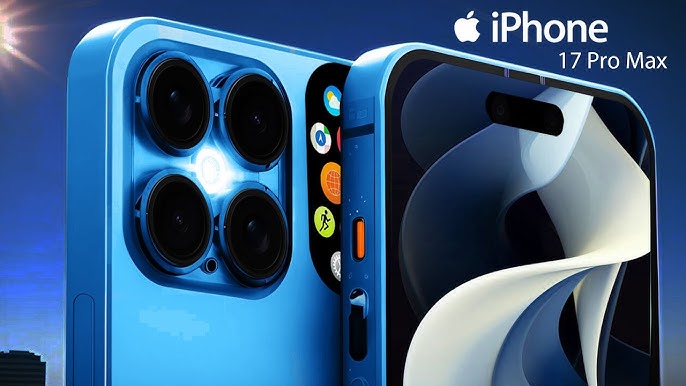Ndërsa Apple vazhdon të zgjerojë kufijtë e dizajnit të smartfonëve, thashethemet dhe rrjedhjet e informacionit kanë ngjallur tashmë kuriozitet për atë se si mund të duket iPhone 17. Me një kombinim të estetikës futuriste dhe teknologjisë më të avancuar, ky pajisje pritet të jetë një ndryshim i madh në treg.
Një Pamje e Guximshme e Re
Apple dyshohet se po largohet nga Dynamic Island dhe po planifikon të prezantojë një ekran tërësisht pa notch me një sistem Face ID nën ekran. Kjo do të rezultojë në një dizajn “all-screen” që maksimizon hapësirën e ekranit pa asnjë prerje të dukshme.
Veçoritë kryesore të dizajnit:
- Titanium Unibody: Pas iPhone 15 Pro, i cili përdori titanium, Apple mund ta përmirësojë materialin për një dizajn më të hollë dhe më të lehtë.
- Ekran me Kënde të Sheshta dhe të Lakuara: Një kombinim i këndeve të sheshta dhe të lakuara mund të ofrojë një kapje më ergonomike duke ruajtur pamjen klasike industriale të Apple.
- Bezels më të Holla: Me përparimet në teknologjinë e ekranit, Apple mund të zvogëlojë bezels deri në nivele thuajse të padukshme, duke përmirësuar përvojën immersive.
- Butona Haptikë të Unifikuar: Thashethemet sugjerojnë se Apple mund të prezantojë butona të integruar për volum dhe energji me feedback haptik, duke eliminuar pjesët lëvizëse për më shumë qëndrueshmëri.
Një Sistem Kamerash i Rishikuar
iPhone 17 mund të sjellë sistemin më të avancuar të kamerave deri tani, duke përfshirë mundësisht:
- Lente periskop për zoom telefoto të avancuar.
- Sensor 1-inç për fotografi më të mira në dritë të ulët.
- Fotografi kompjuterike e fuqizuar nga AI për imazhe më të detajuara dhe të sakta.
Ekran dhe Performancë e Gjeneratës së Ardhsme
- Ekran 120Hz ProMotion LTPO OLED me ndriçim dhe eficiencë më të lartë.
- Çip A19 Bionic i ndërtuar në arkitekturën 3nm+, që ofron shpejtësi dhe eficiencë energjetike të pakrahasueshme.
USB-C dhe Karikim Më i Shpejtë
Me Apple që tashmë po kalon në USB-C, iPhone 17 pritet të ofrojë karikim të shpejtë të telosur dhe pa tel, duke arritur ndoshta deri në 50W MagSafe.
iOS 19 i Fuqizuar nga AI
Fokusimi i Apple në inteligjencën artificiale mund të sjellë:
- Ndërveprime më të zgjuara me Siri.
- Editim fotografish në kohë reale i bazuar në AI.
- Përvoja më të personalizuara për përdoruesit përmes përpunimit AI direkt në pajisje.
iPhone 17 pritet të jetë një hap i madh për Apple, duke kombinuar dizajn futurist, teknologji të avancuar dhe përvoja të personalizuara për përdoruesit, duke e vendosur atë në krye të inovacionit smartphone në vitet e ardhshme.




